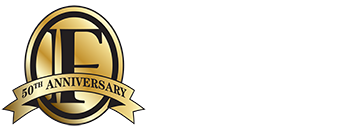Home Insurance Basics
Homeowners
 Homeowner's insurance is a must for all homeowners, renters, condo and apartment dwellers for several reasons. Mortgage lenders require appropriate insurance coverage from mortgage borrowers as a form of asset protection in effect (ie without home insurance you will be denied mortgage approval).
Homeowner's insurance is a must for all homeowners, renters, condo and apartment dwellers for several reasons. Mortgage lenders require appropriate insurance coverage from mortgage borrowers as a form of asset protection in effect (ie without home insurance you will be denied mortgage approval).
Renters
Renters need insurance to protect their belongings. The contents of the home or apartment will not be covered if something happens to the building.
Standard Coverage
A standard homeowner's insurance policy provides coverage for the following:
- Damages to the interior or exterior parts of the residential structures including the outlying structures like sheds and garages, if the policy so provides. The coverage applies only to damages brought by fire, lightning, hurricanes and vandalism, among other covered events. Unless otherwise stated on the contract, damages due to earthquakes, floods and poor home maintenance are not covered; a separate rider is necessary.
- Losses or damages to personal belongings like clothes, jewelry and appliances. The amount for reimbursement usually has a limit, of which the industry standard is 50% to 70%, although homeowners and renters can also have coverage for the items full appraised values.
- Personal liability for injuries and damages caused by the homeowner or any member of his family including pets. For example, if your dog bites your neighbor, your insurance company will pay for the medical expenses.
- Rental expenses while the house is being repaired or rebuilt. The insurance company imposes a limit on the expenses so check the provisions before checking into the most luxurious hotel in the neighborhood.
The type of coverage of a homeowners insurance policy will partly depend on the premiums paid for it. The general rule is that the higher the premiums, the wider the coverage but it still pays to check the terms and conditions of the contract before making any assumptions.
Types of Coverage
Home insurance companies provide three levels of coverage or reimbursements in case of claims.
Actual Cash Value
Actual Cash Value equals the value of the belongings after depreciation is deducted.
Replacement Cost
Replacement cost refers to the actual value itself sans the depreciation deduction.
Guaranteed Replacement Cost
Guaranteed replacement cost is the most comprehensive since all the costs to repair or rebuild the residential structure are covered.


















